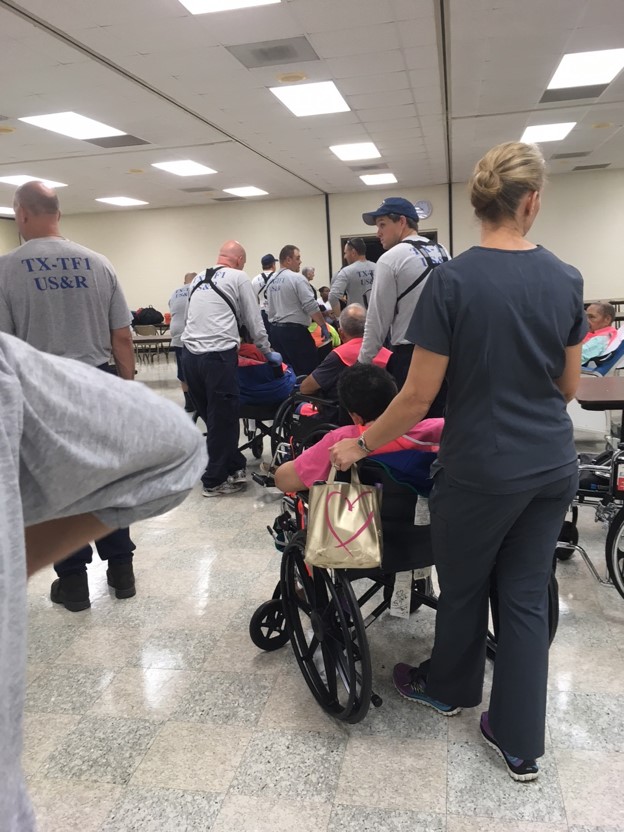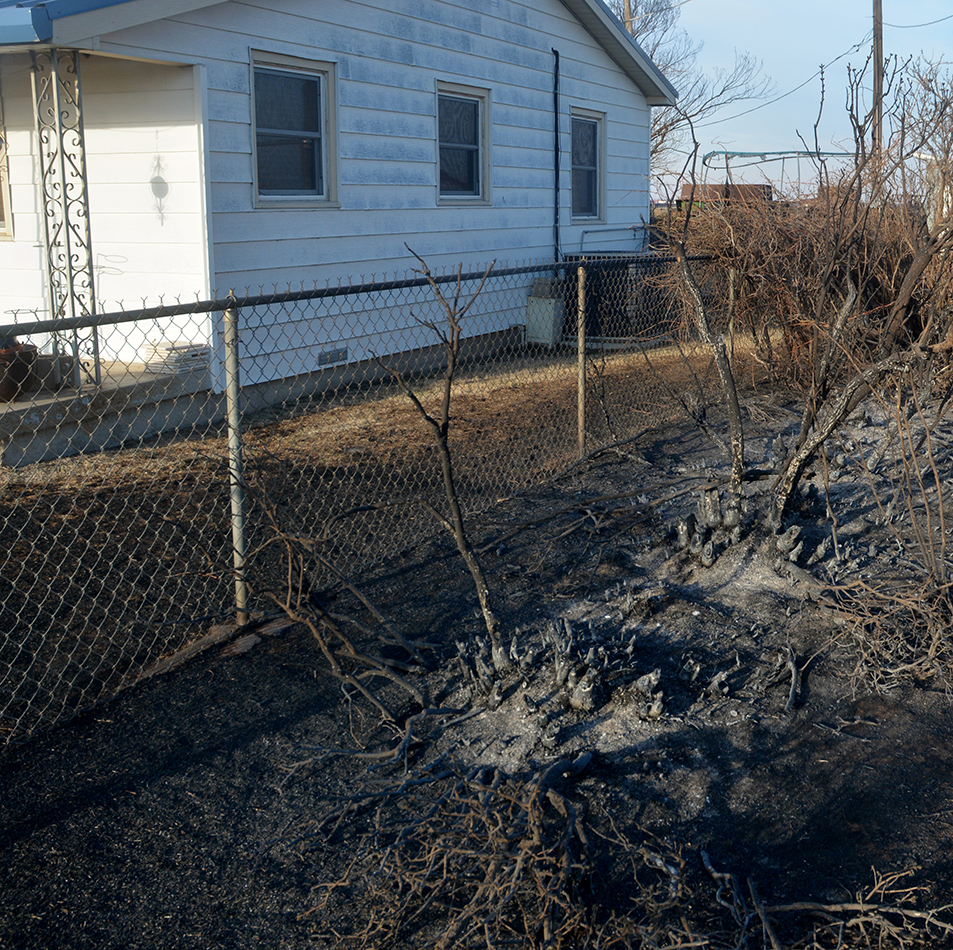Elderly emergency care during weather, fire events
Plan now, decrease stress during emergencies

With the wildfire and spring storm season nearing, it is a good time for older adults, their families, caregivers and the professionals who serve them to establish an emergency plan, according to a Texas A&M AgriLife Extension Service specialist.
“Older adults and persons with special needs might need to plan for additional time, assistance and/or resources in case of emergency,” said Andrew Crocker, AgriLife Extension gerontology and health specialist, Amarillo. “Taking steps now, before the emergency, can reduce the stress an incident can cause and ensure everyone knows the plan to best care for loved ones during and after any crisis.”
Crocker outlined some key steps to take, depending on where your loved one lives:
Pack an emergency bag
Regardless of where a person lives, whether in their own home or in a facility, making a portable emergency supply kit can ensure they have everything they need if they are forced to evacuate. While many emergency preparation steps are the same for everyone, older adults likely have more medications and medical devices they rely on, Crocker said.
The supply kit should include at least a three-day supply of medications, nonperishable food and water, medical devices, such as hearing aids and batteries, glasses or contacts, a flashlight and batteries, personal hygiene items and chargers for cellphones.

“Working closely with a health provider to get an additional supply of extra medication for this type of emergency kit will be important,” he said. “It’s also important to keep an eye on expiration dates for medications, food and water. Don’t make your kit today and expect everything to still be good when you need it in 36 months or so.”
Additionally, consider including copies of important documents and place them in a waterproof bag for safekeeping. These may include copies of their medical insurance card – this may be especially important since the Medicare number is no longer the Social Security number, a photo ID and legal documents.
Also include up-to-date lists of any allergies and health conditions and all medications including dosage, time of day and who prescribed them, and contact information for family members, doctors and caregivers.
If a elderly loved one lives at home

“Something that is often overlooked when deciding whether to stay or go in an emergency are the number of support services that older adults and persons with special needs count on to successfully live independently,” Crocker said.
Even though the emergency may not merit leaving home, will the home-delivered meal service be impacted in the aftermath? Will the home health company still be able to come for their appointment?
“While there may not be primary impact on the person, there may be downstream effects of the event that impact the person’s ability to stay at home,” he said.
Check list of things to do for family member:
- Ensure your loved one has a TV and/or battery-operated radio and encourage them to heed advice about whether to evacuate or remain in place. Older adults may be less likely to abandon their home than other age groups.
- Make a list of friends, neighbors, faith leaders and other close acquaintances who can check on your loved one if you live far away. Also, provide them with your contact information. Older adults may be more likely to evacuate or take some other type of precaution if someone in their social circle encourages them to do so.
- Determine how your loved one will stay in touch with you during an emergency, keeping in mind that cellular service can often be overloaded in a large-scale emergency.
- Investigate where the county/municipality or local emergency authority has a “registry” for persons who may need some additional help during an evaluation.
- Practice evacuating or sheltering-in-place with your loved one.
If a loved one lives in an assisted living or nursing home
Crocker said it is still important to develop a list of friends and neighbors who can check in on your family member. Depending on their health and cognitive status, it may be necessary to create a portable personal emergency supply kit for them here also.
It will be important to make an appointment with someone from the management team to discuss the facility’s disaster preparedness and evacuation plans, he said. Depending on the type of facility, they may close their doors in an emergency with the expectations that the residents evacuate themselves rather than providing for evacuation.
“It’s really incumbent upon the older adult and the family caregiver to find out what plans they have in place for emergencies and whether they review, test and update them regularly,” Crocker says.
To learn about specifics, ask the following questions:
- How are power outages handled there — does the
facility have backup generators and are they maintained regularly? - Who will administer medications and tend to
special needs like oxygen therapy during an emergency? - Do you evacuate residents? Who will be
responsible for evacuating your loved one and getting him or her to a safe
place? - Are all residents taken to the same evacuation
point? Or are persons with special health care needs taken to facilities that
can handle their condition? - How will the staff communicate to family members
what’s being done to care for loved ones during an emergency?





